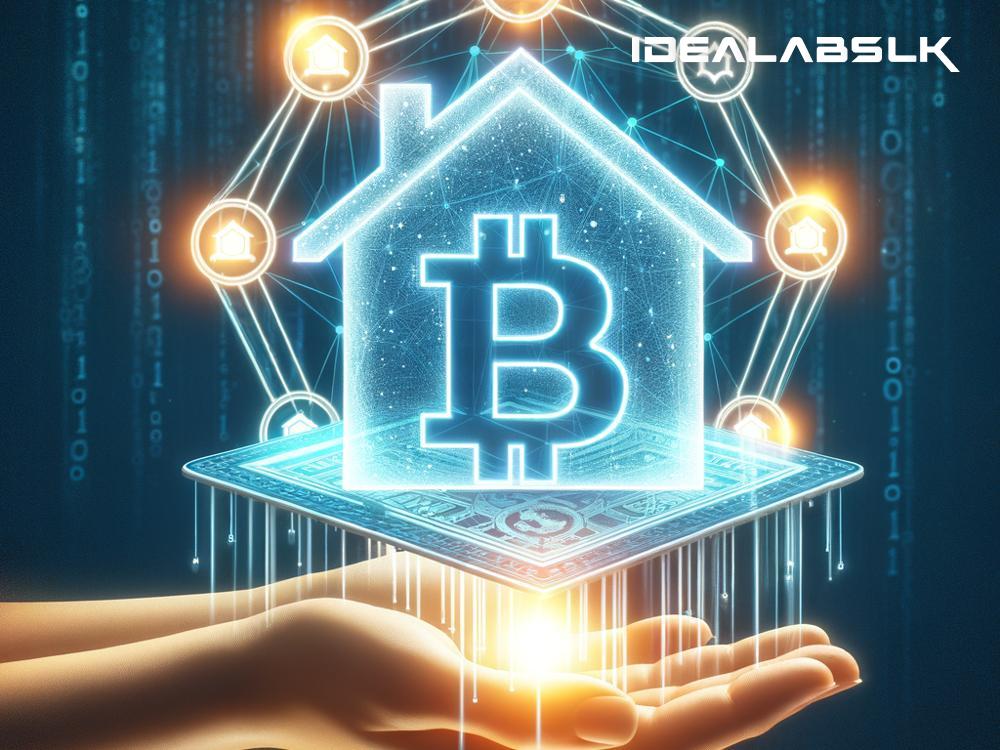Blockchain for Real Estate: Simplifying Property Ownership Transfers with Smart Contracts
In the ever-evolving landscape of technology, blockchain stands out as a revolutionary force, especially in sectors like real estate. This technology, primarily known for powering cryptocurrencies like Bitcoin, is now making waves in the property market. At the heart of this transformation are "smart contracts" - digital agreements that auto-execute transactions when certain conditions are met. Let's dive into how blockchain and smart contracts are streamlining property ownership transfers and what this means for buyers, sellers, and investors.
Understanding Blockchain and Smart Contracts
Before we explore their impact on real estate, it's essential to grasp what blockchain and smart contracts actually are. Imagine a ledger or a record book that's not kept in one place but duplicated across a network of computers. This is the blockchain. It's secure, transparent, and nearly impossible to tamper with, making it an ideal platform for conducting transactions.
Smart contracts operate on the blockchain. They are like traditional contracts, but digital and automated. Picture a vending machine: you select a snack, pay, and the machine automatically dispenses your choice. Smart contracts work similarly but in the digital world. They execute transactions automatically when certain agreed-upon conditions are fulfilled, without the need for middlemen.
Revolutionizing Real Estate Transactions
The traditional process of transferring property ownership is often lengthy, complicated, and laden with paperwork. It involves multiple parties, including agents, lawyers, and banks. Blockchain technology, through the use of smart contracts, proposes a streamlined alternative. Here's how:
-
Speed and Efficiency: By automating the transaction process, smart contracts can significantly reduce the time it takes to transfer property ownership. What usually takes months could potentially be completed in days or even hours.
-
Cost Reduction: Smart contracts eliminate the need for many of the middlemen (like escrow services) traditionally involved in real estate transactions, reducing costs for both buyers and sellers.
-
Increased Security and Transparency: Blockchain's immutable nature ensures that once a transaction is recorded, it cannot be altered. Every party involved has access to the transaction history, reducing the risk of fraud and disputes.
-
Simplified Process: The automation of agreements and the digital verification of property titles and funds can simplify the buying and selling process, making it more accessible to everyone involved.
Real-world Applications
Several startups and even established companies are exploring the use of blockchain and smart contracts in real estate. Here are a few ways they're being applied:
- Tokenization of Property: This involves dividing property into shareable tokens that can be sold on the blockchain. It lowers the barrier to real estate investment, allowing people to own parts of property and earn returns on their investment.
- Property Management: Smart contracts can automate various aspects of property management, such as collecting rent, managing leases, and overseeing maintenance contracts.
- Title Transfers: In some jurisdictions, blockchain is being explored as a way to manage and transfer property titles directly, reducing fraud and speeding up the process.
Challenges and the Road Ahead
Despite its potential, the adoption of blockchain in real estate is not without its challenges. Regulatory hurdles, the need for standardization, and concerns about privacy and security are among the obstacles that need to be navigated. Additionally, there's a significant need for education and awareness, as the concepts of blockchain and smart contracts are still new to many in the real estate sector.
However, the benefits that blockchain brings to real estate transactions can't be ignored. As technology continues to evolve and stakeholders become more comfortable with digital transactions, we're likely to see more widespread adoption of blockchain and smart contracts in the real estate world.
Conclusion
Blockchain and smart contracts have the potential to radically change how we buy, sell, and manage property. They offer a more efficient, secure, and cost-effective way of transferring property ownership than traditional methods. While there are challenges to be overcome, the future of real estate looks promising with blockchain technology paving the way for simpler, faster, and more transparent transactions. As we move forward, it's an exciting time for both technology enthusiasts and real estate professionals alike, as they navigate this new digital landscape.

